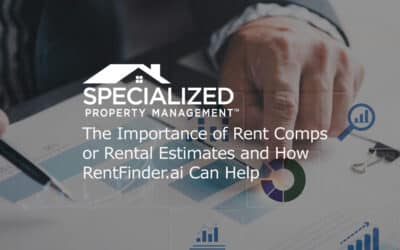Are you a landlord in the great state of Texas who wants to learn about the intricacies of landlord-tenant law with confidence and clarity? You’ve come to the right place!
Whether you’re a seasoned property owner or just starting your rental journey, understanding Texas landlord-tenant law is essential for a harmonious and successful experience between you and your renters.
In this article, we’ll be your trusted guide, providing insights, tips, and expert advice to help you master the legal landscape. From lease agreements to property maintenance and tenant rights, we’ve got you covered.
Required Landlord Disclosures in Texas
Texas, like many states, has specific requirements regarding what information landlords must disclose to tenants. These mandatory disclosures are designed to ensure transparency, protect the rights of tenants, and maintain a fair and lawful rental relationship. Let’s delve into each of these required disclosures in more detail:
Lead-Based Paint Disclosure
If the rental property was built before 1978, federal law requires that landlords provide tenants with information about the presence of lead-based paint in the property.
This disclosure is essential for the safety of tenants, especially families with children, as exposure to lead-based paint can have serious health implications. Landlords must also provide tenants with an Environmental Protection Agency (EPA)-approved pamphlet on lead-based paint hazards.

Authorized Agents
Landlords in Texas must provide the names and contact information of all parties involved in managing their rental property. This disclosure ensures that tenants know who to contact in case of maintenance requests, emergencies, or other issues related to the property. It promotes transparency and accountability within the landlord-tenant relationship.
Right to Repair and Deduct
Tenants have the right to request repairs in their rental unit, and if the landlord fails to make these necessary repairs within a reasonable timeframe, the tenant may be able to deduct the cost of the repair from the rent.
This disclosure provides tenants with the knowledge and authority to address maintenance issues promptly, thus ensuring the habitability of the property they live in.
Parking Rules
In multi-unit complexes with parking rules and restrictions, landlords are required to disclose these rules to tenants. This includes information about parking permits, designated parking spaces, and any associated fees.
Clarity on parking regulations helps tenants adhere to property rules and avoid any parking-related issues.
Late Fees
Landlords must also disclose any late fees associated with rent payments. This ensures tenants are aware of the consequences of late rent payments and can plan accordingly.
Transparency in this area helps tenants avoid unnecessary financial penalties and, in turn, maintains a positive landlord-tenant relationship.

Emergency Phone Number
Providing a 24-hour emergency phone number is a crucial disclosure, especially in cases of urgent situations like water leaks, electrical issues, or security concerns. Tenants must have access to a reliable means of reporting emergencies, ensuring their safety and well-being.
Texas Tenant Rights and Responsibilities
Tenants in Texas enjoy certain rights and bear responsibilities to ensure the rental relationship remains smooth and trouble-free.
Tenant Rights
The following are the basic Texas renter’s rights. A tenant has the right to:
- Texas tenants are protected from housing discrimination based on their race, color, national origin, religion, familial status, sex, or disability, as outlined in the Fair Housing Act.
- Tenants have the option to terminate their leases under specific circumstances, such as military duty, inhabitable living conditions, landlord harassment, domestic violence, sexual assault, or stalking.
Tenant Responsibilities
The following are the basic tenant responsibilities in the state of Texas. A tenant must:
- Tenants have the responsibility to pay rent on time as stipulated in the rental agreement.
- Tenants must maintain their rental units in a safe and habitable condition, ensuring they do not cause damage or neglect their responsibilities.
- Proper use of fixtures and keeping them clean and sanitary is another tenant responsibility.
- Tenants are responsible for minor repairs and maintenance that are not the landlord’s duty.
- Tenants must promptly inform the landlord of any defects or maintenance issues to ensure they are addressed in a timely manner.
- Tenants should not disturb other tenants or neighbors and should ensure their actions do not disrupt the peace of the community.

Texas Landlord Rights and Responsibilities
Landlords in Texas also have specific rights and responsibilities. Complying with these rights and responsibilities ensures that landlords operate within the boundaries of the law and maintain a positive and lawful rental relationship with tenants.
Landlord Rights
The following are the basic landlord rights in the state of Texas:
- Landlords have the right to timely rent payments as agreed upon in the lease.
- Landlords have the right to enter rental property for inspections and maintenance, but they usually need to provide notice to tenants before doing so. However, they are not required to get permission in emergencies.
Landlord Responsibilities
The following are the basic landlord responsibilities in the state of Texas.
- Landlords are legally obligated to rent out properties that meet basic health and safety requirements. For example, heating and hot water must be provided.
- Landlords must make necessary repairs in a reasonable timeframe, typically within seven to 14 days of receiving written notice.
- It is illegal for landlords to retaliate against tenants who take protected actions, such as reporting health and safety violations, by raising rent, reducing services, or threatening eviction.
- Landlords must comply with local laws and regulations, including those related to security devices, parking rules, and utility bills.

An Overview of the Landlord-Tenant Laws in Texas
Texas landlord-tenant laws cover various aspects of the rental relationship. Here’s a brief overview of some key areas:
- Tenant privacy and landlord’s right to enter the dwelling: Landlords in Texas have the right to enter rental property for inspections and maintenance, with proper notice in most cases.
- The condition, maintenance, and repairs: Landlords must provide and maintain a habitable dwelling, making necessary repairs in a timely manner.
- Housing discrimination laws: Texas follows federal Fair Housing Act protections, prohibiting discrimination based on specific factors.
- Security deposits: While specific laws regarding security deposits are not mentioned in the provided text, Texas law typically regulates the collection, handling, and return of security deposits.
- Required landlord disclosures: Texas landlords must adhere to the mandatory disclosure requirements mentioned earlier.
- Renters’ right to withhold rent: Tenants have the right to withhold rent or make repairs and deduct costs under certain circumstances when the landlord fails to fulfill their responsibilities.
- Small claims lawsuits: Small claims court is the typical venue for resolving minor disputes between landlords and tenants in Texas, including issues related to security deposits.
Conclusion
If you have specific questions, hire the services of a qualified Texas attorney. Alternatively, you can seek help from a knowledgeable property management company. Let Specialized Property Management Houston be your property management partner. We make navigating local laws easier than ever!
Disclaimer: Please note that the information provided in this blog is intended for general guidance and should not be considered as a replacement for professional legal advice. It is important to be aware that laws pertaining to property management may change, rendering this information outdated by the time you read it.






